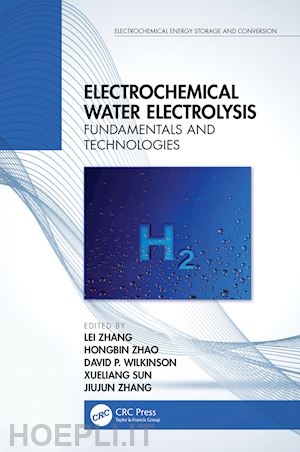Lei Zhang Energy, Mining & Environment, National Research Council of Canada, Vancouver, Canada Lei Zhang is a Senior Research Officer at National Research Council Canada (NRC) and a Fellow of the Royal Society of Chemistry (FRSC). Lei received her first Master’s degree in Materials Chemistry (1993) from Wuhan University (China) and her second Master’s degree in Physical Chemistry (2000) from Simon Fraser University (Canada). Following her second Master’s degree, Lei was appointed as a principle investigator at Molecular Membrane Technologies Inc., Vancouver (2001-2004). In 2004, Lei joined NRC to help initiate the PEM Fuel Cell program. Lei’s main research interests include advanced materials and electrochemical energy technologies in the area of PEM Fuel Cell electrocatalysis, supercapacitors and batteries. She has co-authored more than 200 publications with citations > 17,500. Lei is the member of the NSERC Industrial R&D Fellowships College of Reviewers, the Editorial Board Member of Electrochemical Energy Reviews (EER) -Springer Nature, the Editorial Board Member of International Journal of Nanoparticles & Nanotechnology and the Editorial Board Member of Current Mechanics and Advanced Materials. She is an active member of the Royal Society of Chemistry (RSC), the Canadian Society for Chemistry (CSC), and the Canadian Society for Chemical Engineering (CSChE). Hongbin Zhao College of Sciences & Institute for sustainable Energy, Shanghai University, Shanghai, China Zhao Hongbin Full Professor Ph.D. supervisor Professor Hongbin Zhao received his Ph.D. in chemical engineering from Shanghai Jiaotong University in 2009. Then he engaged in postdoctoral research at Shanghai University from 2009 to 2011. As visiting scholar, he visited the University of Waterloo in Canada from 2014 to 2015. He is a full professor in Shanghai University since 2018. He focuses on the research and development of fuel cell catalysts, membrane electrode assemble and engine systems, the application of hydrogen production from water electrolysis, and lithium ion battery cathodes and new electrochemical energy storage and converter. At present, he focused on the special new energy vehicle project funded by the Ministry of Science and Technology of China (MSTC), developing the proton exchange membrane fuel cell stack and system integration used for logistics vehicle, mini-car and bus power supply system. He is a Member of the Chinese Chemical Society. He is an author and coauthor of over 110 pape with citations of over 1,400 times and H-index of 22. He presided over 11 research projects and 2 horizontal cooperation projects. As a deputy editor, he has published 2 books and 2 chapters on Springer Nature. He is a reviewer of important chemical and material journals such as Adv. Mater., Adv. Fun. Mater., Nano Energy, J. Mater. Chem A. He is project evaluation expert of MSTC and the Shanghai Science and Technology Commission. He was funded by Shanghai Pujiang talent project. David P. Wilkinson Department of Chemical and Biochemical Engineering, University of British Columbia, Vancouver, Canada Dr. David Pentreath Wilkinson is a Professor and Canada Research Chair (Tier 1) in the Department of Chemical and Biological Engineering at the University of British Columbia (UBC), Canada. Dr. Wilkinson’s main research interests are in electrochemical and photochemical devices, energy conversion and storage materials, and processes to create clean and sustainable energy and water. He has more than 80 issued patents and 210 refereed journal articles, a co-authored book, and a number of edited books and book chapters, covering innovative research in these fields. He has received a number of awards for his work, and he is a fellow of several organizations including the Engineering Institute of Canada, the Canadian Academy of Engineering, the Chemical Institute of Canada, and the Royal Society of Canada Dr. Wilkinson received his B.A.Sc. in Chemical Engineering from UBC in 1978, his Professional Engineering status in 1980, and his PhD in Physical Chemistry from the University of Ottawa in 1987, where his graduate work was done with Professor Brian Conway in electrochemistry. Prior to joining the university in 2004 Dr. Wilkinson had more than 20 years of industrial experience in the areas of fuel cells and advanced lithium batteries. He has held a variety of leadership positions including being Associate Department Head, Executive Director of the UBC Clean Energy Research Center, Principal Research Officer and Senior Advisor with the National Research Council of Canada in Vancouver, Director and Vice President of Research and Development at Ballard Power Systems, and Section Leader for Chemistry at Moli Energy (now E-One Moli Energy). Dr. Wilkinson was an important part of the team that developed the first commercial rechargeable Lithium AA battery, and he is considered a pioneer in the development of the modern commercial PEM fuel












